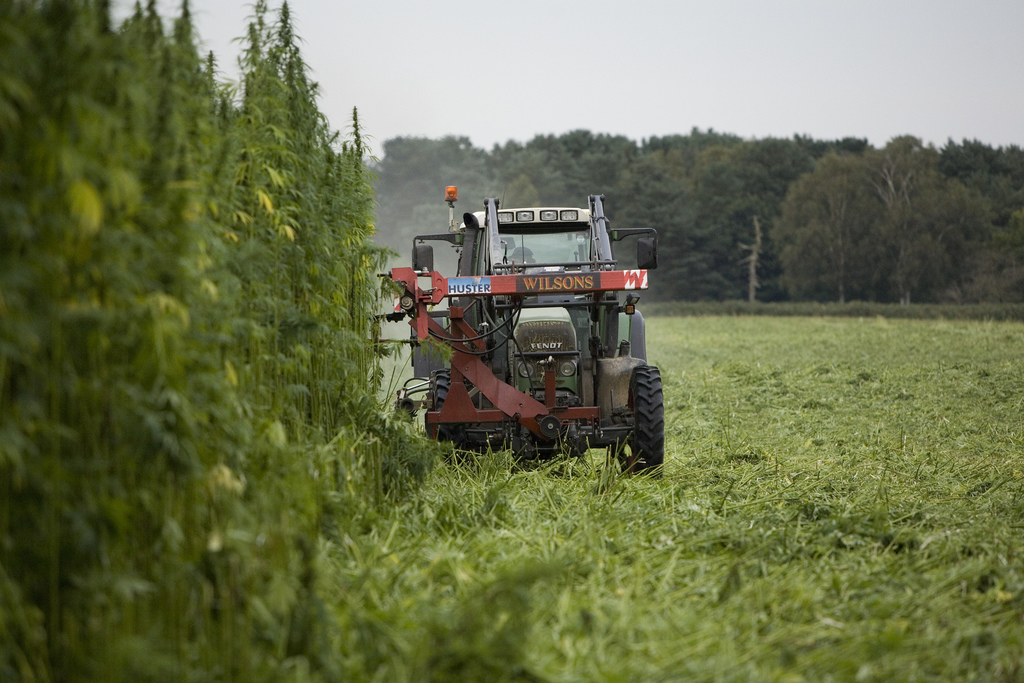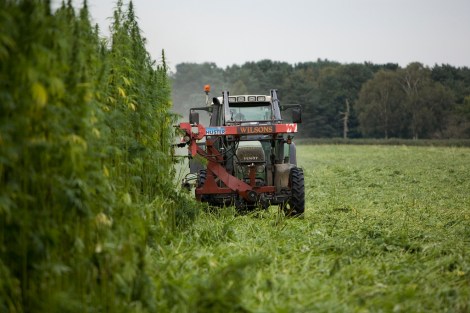A couple months ago, I asked if industrial hemp would make a resurgence thanks to new legalization and cultural acceptance of cannabis. A real hemp industry could be as much as 10 times bigger than legal marijuana, which is already a potentially $1 billion industry in Washington and $200 million in Colorado.
But back in November, farmers were a little skittish. “Yes yes, the U.S. is the biggest consumer of hemp which is pretty damn sustainable compared to other fibers and grows relatively easily without a bunch of pesticides, but the federal government is crazy and they’re giving us so much money for all this corn!” they said (approximately).
Still, some farmers, like Michael Bowman in Colorado, are determined to cultivate the evil plant. “Can we just stop being stupid? Can we just talk about how things need to change?” Bowman asked The Washington Post, which did not have a very good answer.
Bowman’s project to plant 100 acres of hemp on his 3,000-acre farm on April 30 — to coincide with the 80th birthday of his friend singer Willie Nelson, known for his support for hemp and marijuana legalization — could run afoul of the Agriculture Department’s farm program, which helps subsidize his corn and wheat. He also grows edible beans, alfalfa and, occasionally, sunflowers.
In a statement, Agriculture Department spokesman Justin DeJong said that since hemp is considered “a Schedule I controlled substance” under the Controlled Substances Act of 1970, it “cannot be grown on farmland” receiving federal commodity subsidies. If convicted of a violation, a farmer cannot get subsidies for five years.
Efforts to plant this seed aren’t just relegated to Washington and Colorado, with their newly legal marijuana. “If we’re serious about climate change and the environment, there is no single thing we can do that is more impactful,” said Denver-based hemp-farming advocate Lynda Parker, who may or may not be smoking something. But hemp is also serious business, of the money-and-jobs kind.
In Kentucky, the hemp-growing capital of the post-prohibition era, legislators are backing an initiative that would put cannabis back in the ground. “Everybody says they are for job creation, but supporting industrial hemp is their chance to prove it,” Sen. Rand Paul (R-Ky.) said of the proposal. Paul and Kentucky Agriculture Commissioner James Comer are pushing the initiative.
Some law enforcement officials say that with the current economic climate, it is time to at least explore changing the legality of growing hemp for industrial purposes …
“If there is a way to keep the legal side of hemp away from illegal marijuana, then I have no problem with legalizing hemp,” Lancaster Police Chief Rodney Kidd said. “But I am not into ‘go grow and be happy.’”
Politicians in Virginia are also clamoring for legalization of hemp farming to pick up where manufacturing and tobacco jobs have fallen off.
The Hemp Farming Act of 2012 is still kind of being kicked around, but state initiatives seem more likely to succeed. Still, unless federal priorities change, farmers who take on hemp will always be doing so under great legal and economic threat. It’s too bad there’s nothing the feds could take to just, like, totally chill out, right?



